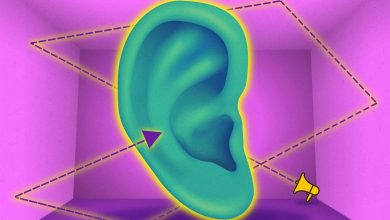
Lead Image: Researchers have identified early indicators of Parkinson’s disease in eye scans, years before symptoms occur. This could lead to pre-screening tools and preventive measures against neurodegenerative diseases through the emerging field of oculomics.
Early detection of Parkinson’s disease through eye scans may soon enable preventive strategies against neurodegeneration, thanks to a major study using AI in retinal imaging.
Markers that indicate the presence of Parkinson’s disease in patients on average seven years before clinical presentation have been identified by a UCL and Moorfields Eye Hospital research team.
This is the first time anyone has shown these findings several years before diagnosis, and these results were made possible by the largest study to date on retinal imaging in Parkinson’s disease.
Study Methodology and Findings
The study, published recently in Neurology, the medical journal of the American Academy of Neurology, identified markers of Parkinson’s in eye scans with the help of artificial intelligence (AI). Its analysis of the AlzEye dataset was repeated using the wider UK Biobank database (healthy volunteers), which replicated the discoveries. The use of these two large, powerful datasets has enabled the team to identify these subtle markers, even though Parkinson’s disease has a relatively low prevalence (0.1-0.2% of the population). Generation of the AlzEye dataset was enabled by INSIGHT, the world’s largest database of retinal images and associated clinical data.
The Diagnostic Power of Eye Scans
The use of data from eye scans has previously revealed signs of other neurodegenerative conditions, including Alzheimer’s, multiple sclerosis, and, most recently, schizophrenia, in an emerging and exciting field of research referred to as “oculomics.”
Eye scans and eye data have also been able to reveal a propensity to high blood pressure; cardiovascular disease including strokes; and diabetes.
Doctors have known for a long time that the eye can act as a ‘window’ to the rest of the body, giving a direct insight into many aspects of our health. High-resolution images of the retina are now a routine part of eye care – in particular, a type of 3D scan known as ‘optical coherence tomography’ (OCT), which is widely used in eye clinics and high-street opticians. In less than a minute, an OCT scan produces a cross-section of the retina (the back of the eye) in incredible detail – down to a thousandth of a millimeter.
AI Uncovers Hidden Information
These images are extremely useful for monitoring eye health, but their value goes much further, as a scan of the retina is the only non-intrusive way to view layers of cells below the skin’s surface. In recent years, researchers have started to use powerful computers to accurately analyze large numbers of OCTs and other eye images, in a fraction of the time it would take a human. Using a type of AI known as ‘machine learning’, computers are now able to uncover hidden information about the whole body from these images alone. Harnessing this new potential is what oculomics is about.
Lead author Dr Siegfried Wagner (UCL Institute of Ophthalmology and Moorfields Eye Hospital), who is also principal investigator of several other AlzEye studies, said: “I continue to be amazed by what we can discover through eye scans. While we are not yet ready to predict whether an individual will develop Parkinson’s, we hope that this method could soon become a pre-screening tool for people at risk of disease.
“Finding signs of a number of diseases before symptoms emerge means that, in the future, people could have the time to make lifestyle changes to prevent some conditions arising, and clinicians could delay the onset and impact of lifechanging neurodegenerative disorders.”
Collaborative Efforts
This work has involved collaboration between the NIHR (National Institute of Health and Social Care) Biomedical Research Centres at Moorfields Eye Hospital, University Hospital Birmingham, Great Ormond Street Hospital (GOSH), Oxford University Hospital, University College Hospital London and the UCL Great Ormond Street Institute of Child Health. The scope and quality of the research have been maximized through these exceptional NHS research partnerships.
Professor Alastair Denniston, consultant ophthalmologist at University Hospitals Birmingham, professor at the University of Birmingham and part of NIHR Moorfields BRC said: “This work demonstrates the potential for eye data, harnessed by the technology to pick up signs and changes too subtle for humans to see. We can now detect very early signs of Parkinson’s, opening up new possibilities for treatment.”
Miss Louisa Wickham, Moorfields’ medical director, explained: “Increasing imaging across a wider population will have a huge impact on public health in the future, and will eventually lead to predictive analysis. OCT scans are more scalable, non-invasive, lower cost, and quicker than brain scans for this purpose.”
Technical and Background Information
Parkinson disease’s is a progressive neurological condition, characterized by a reduction of dopamine, and post-mortem examination of patients with Parkinson’s disease has found differences in the INL (inner nuclear layer) of the retina. Previous studies using OCT scans have found potential morphological abnormalities associated with the disease, but with inconsistencies.
This study confirmed previous reports of a significantly thinner GCIPL (ganglion cell–inner plexiform layer), while for the first time finding a thinner INL. It further found that a reduced thickness of these layers was associated with an increased risk of developing Parkinson’s disease, beyond that conferred by other factors or comorbidities.
Future Research
Future studies are needed to determine whether progression of GCIPL atrophy is driven by brain changes in Parkinson’s disease, or if INL thinning precedes GCIPL atrophy. Exploring this could help explain the mechanism and determine whether retinal imaging could support the diagnosis, prognosis, and complex management of patients affected by Parkinson’s disease.
The study also did not have detailed clinical information about Parkinson’s disease status in the patients (exact diagnosis date, treatment patterns and current therapy), which could have related retinal changes to disease duration or progression.
A group led by the study’s senior author, Professor Pearse Keane (UCL Institute of Ophthalmology and Moorfields Eye Hospital) has been awarded funding by UK Research and Innovation this month for further research into scaling and validating their foundation model for ophthalmology, including the detection of eye and other diseases.
Reference:
“Retinal Optical Coherence Tomography Features Associated With Incident and Prevalent Parkinson Disease” by Siegfried Karl Wagner, David Romero-Bascones, Mario Cortina-Borja, Dominic J. Williamson, Robbert R. Struyven, Yukun Zhou, Salil Patel, Rimona S. Weil, Chrystalina A. Antoniades, Eric J. Topol, Edward Korot, Paul J. Foster, Konstantinos Balaskas, Unai Ayala, Maitane Barrenechea, Iñigo Gabilondo, Anthony H.V. Schapira, Anthony P. Khawaja, Praveen J. Patel, Jugnoo S. Rahi, Alastair K. Denniston, Axel Petzold and Pearse Andrew Keane, for UK Biobank Eye & Vision Consortium, 21 August 2023, Neurology.
DOI: 10.1212/WNL.0000000000207727
Funding:
National Institute for Health Research, Birmingham Biomedical Research Centre, NIHR Oxford Biomedical Research Centre, UCLH Biomedical Research Centre, NIHR Great Ormond Street Hospital Biomedical Research Centre, National Institute for Health Research Biomedical Research Centre at Moorfields Eye Hospital NHS Foundation Trust and UCL Institute of Ophthalmology, Medical Research Council, Fight for Sight UK




